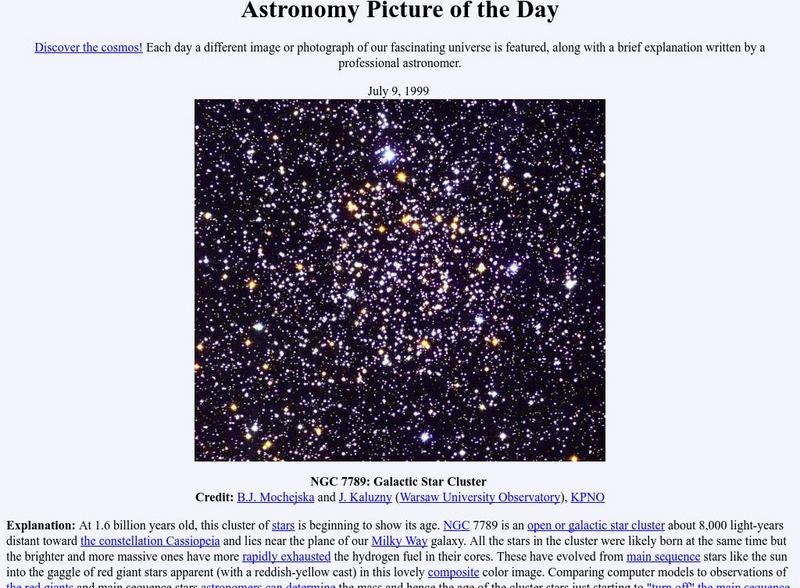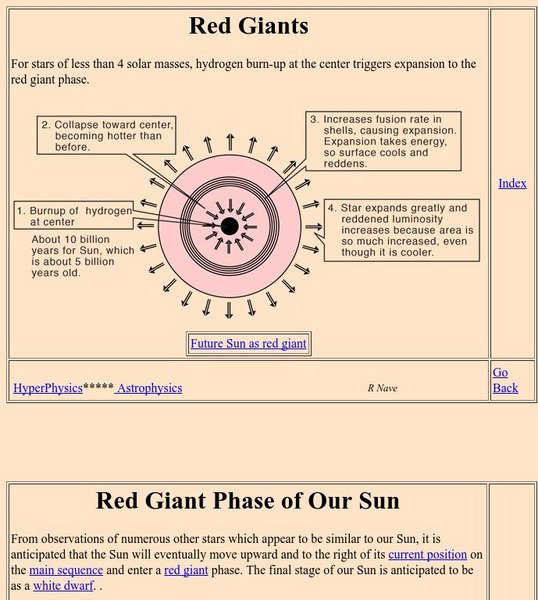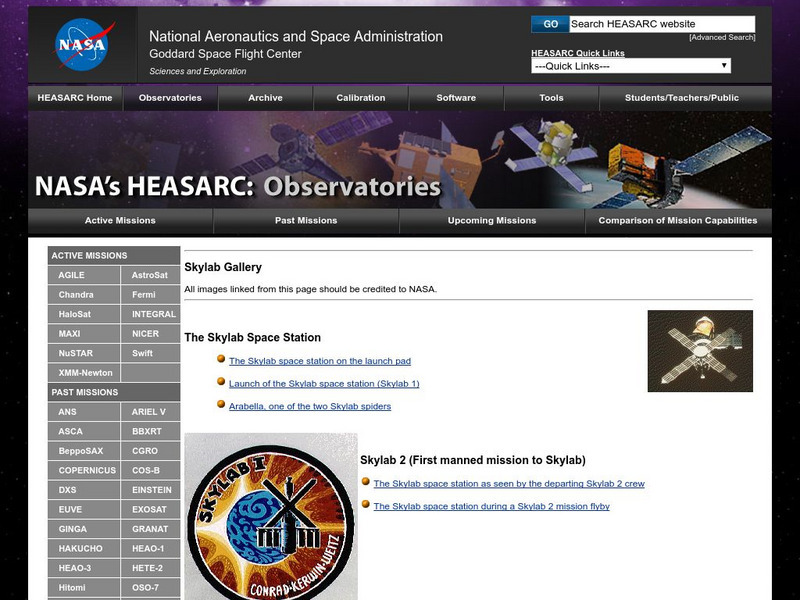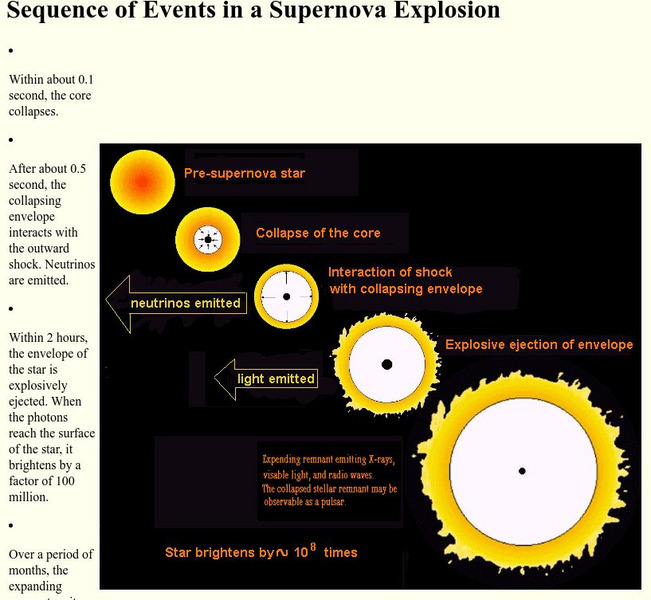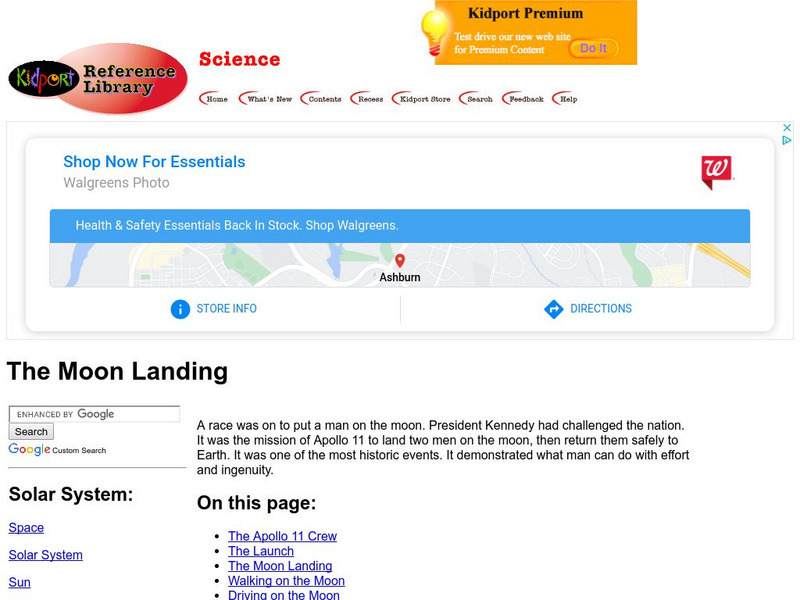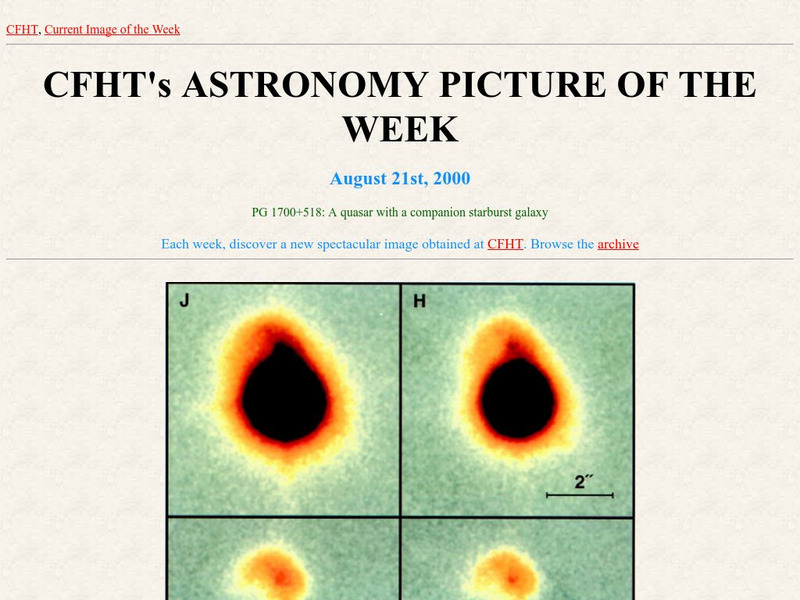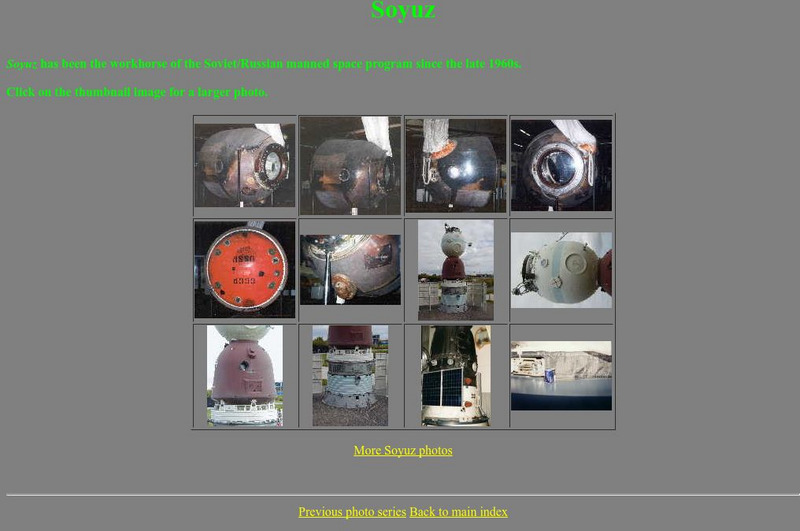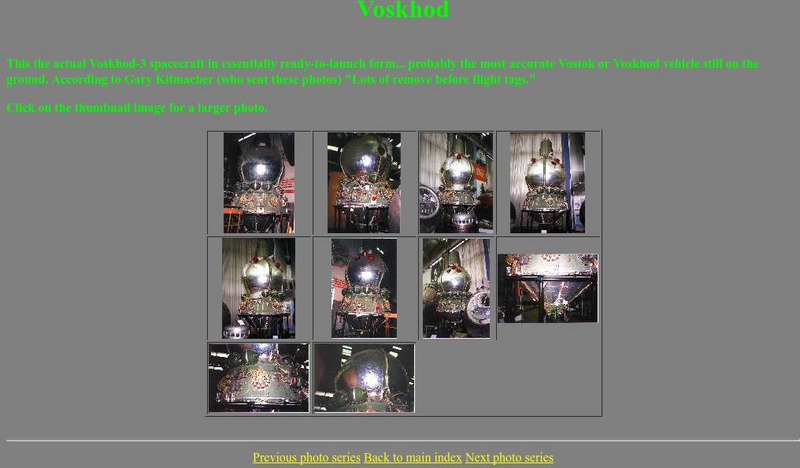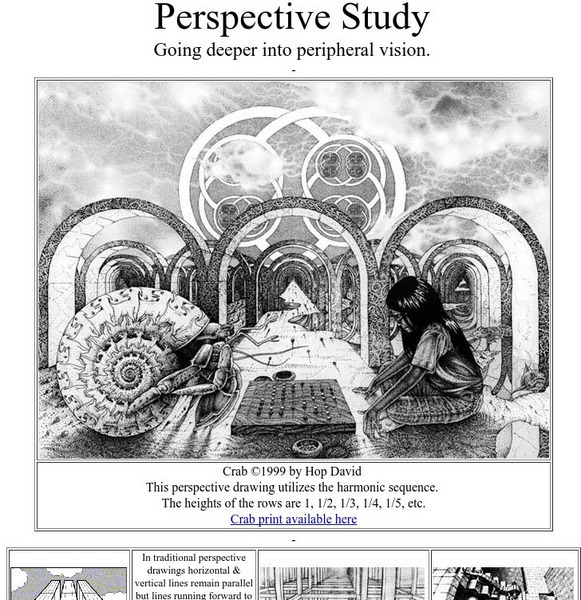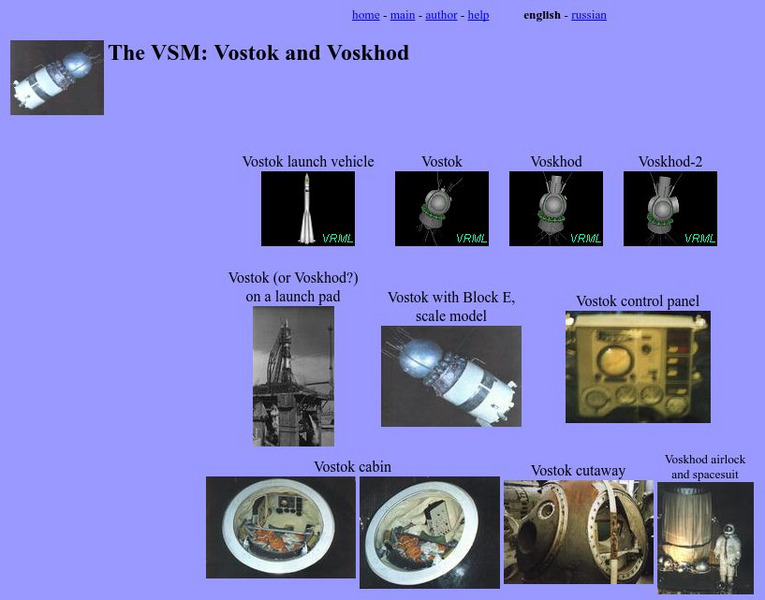Hi, what do you want to do?
PBS
Pbs: Nova Online: Birth of a Supernova
PBS site explores the birth of a Supernova and explores its common types.
NASA
Nasa: Astronomy Picture of the Day: Giant Stars
Image of a group of red giant stars are seen in an image from the edge of the plane of the Milky Way. The evolution of these stars is explained. Many embedded links contained in the text to related topics.
Georgia State University
Georgia State University: Hyper Physics: Red Giants
Describes the red giant star's development stages and the scenario of our sun as a red giant. Diagrams are used to present the information.
NASA
Goddard Space Flight Center: The Skylab Space Station
On this website you can find pictures of Skylab missions 2,3, and 4.
Cornell University
Cornell University: Astronomy: Sequence of Events in a Supernova Explosion
The complex sequence of events in a supernova explosion are explained and illustrated.
NASA
Electromagnetic Spectrum: Ultraviolet Waves
Ultraviolet (UV) light has shorter wavelengths than visible light. Though these waves are invisible to the human eye, some insects can see them. The specific wavelength values are given. Uses and applications of these waves are explained.
NASA
Nasa: History of Venus Transit
NASA site recounts the history of the Venus Transits that have occurred over the past centuries and the various descriptions astronomers have written about them.
PBS
Pbs Learning Media: Defying Gravity
Students are asked how acceleration, mass, momentum and velocity are involved in mountain boarding. [0:32]
PBS
Pbs Learning Media: Space Travel
Students are asked to explain why the astronauts in the video are floating and what problems this phenomenon creates for people that travel in space.
University of Illinois
University of Illinois: Stars and Constellations: White Dwarf Supernovae
Discusses the formation of the white dwarf and the role this star plays in the formation of a white dwarf supernovae.
University of Illinois
University of Illinois: Stars and Constellations: Planetary Nebulae
This resource contains information about planetary nebulae and their characteristics.
Kidport
Kidport: The Moon Landing
Travel back in history and see the first men on the moon. See photos of the crew, the launch, the landing and more.
Kidport
Kidport: The Space Shuttle
Students can see actual photos of a space shuttle launching from earth as well as the people who now could go because of technology. Learn about some of the equipment and vehicles used to make it happen.
University of Hawai'i
University of Hawaii Cfht: Quasars
Provides basic information related to quasars.
Instituto Latinoamericano de la Comunicacion Educativa
La Ciencia Para Todos: Ciencias De La Tierra
In this site you will find several topics about our planet Earth: remote perception from space, earthquakes and the structure, age and composition of our planet Earth.
PBS
Pbs: Discovery of Quasars 1960
PBS offers a brief history of the discovery of quasars and the people involved.
NASA
Nasa: La Exploracion De La Magnetosfera Terrestre
This site is a general overview of space research on the environment of the Earth in space.
National Earth Science Teachers Association
Windows to the Universe: Junk in Space
Did you know that International Space Station used to release its trash into space? There is a lot of junk orbiting around Earth! In this game, you are asked to capture eleven examples of the junk that is floating in space but be careful...
Other
Soviet Space Photos: Photos of Voskhod 3
Actual photos of the Voskhod 3, viewable as larger versions upon clicking the thumbnail.
Other
Hop's Gallery: Perspective Study
This webpage explores traditional perspective drawings as well as contemporary drawings, focusing on their use of horizontal and vertical lines.
Space Telescope Science Institute
The Hubble Heritage Project: Crab Nebula
A picture of the Crab Nebula and accompanying text.






